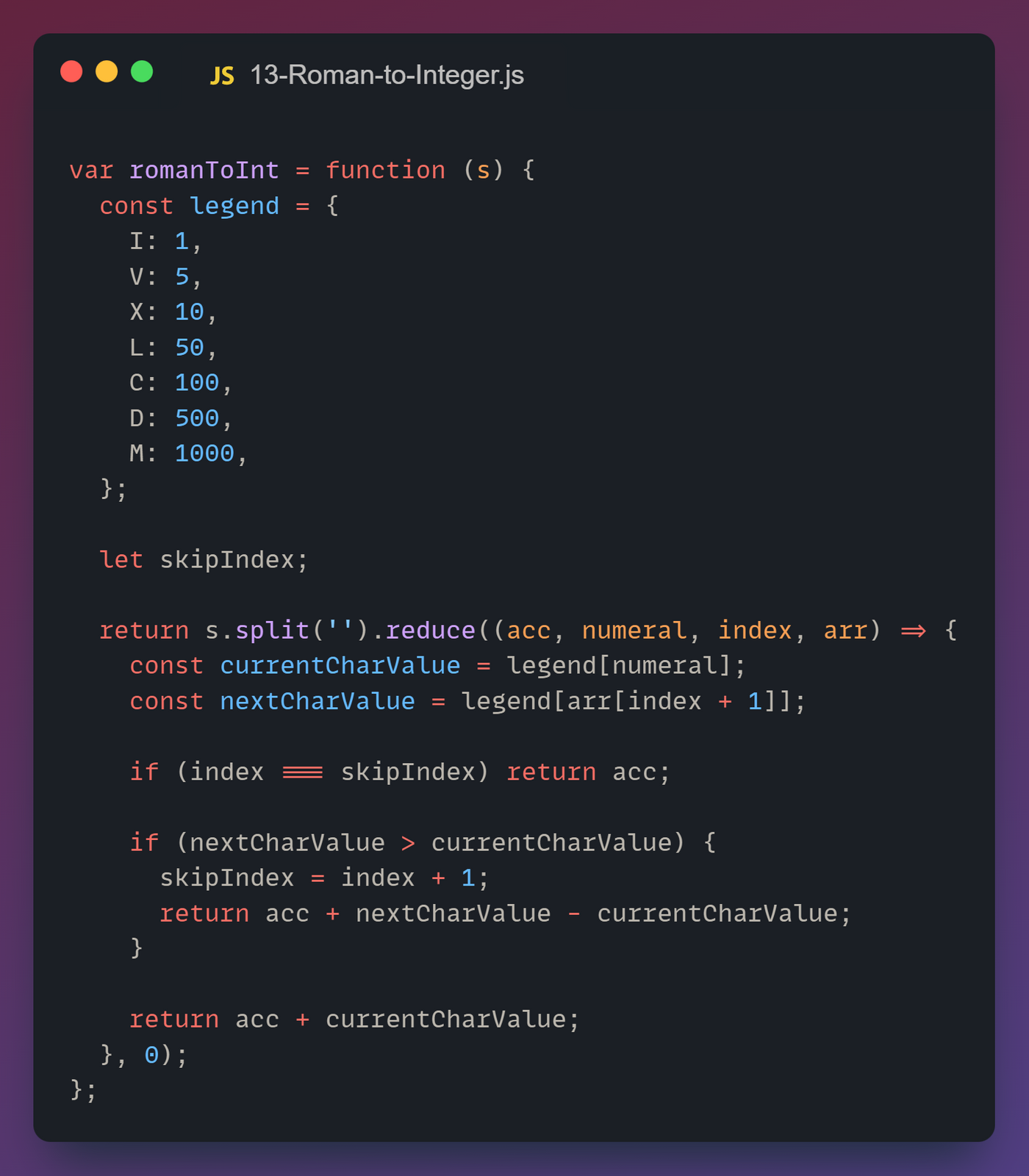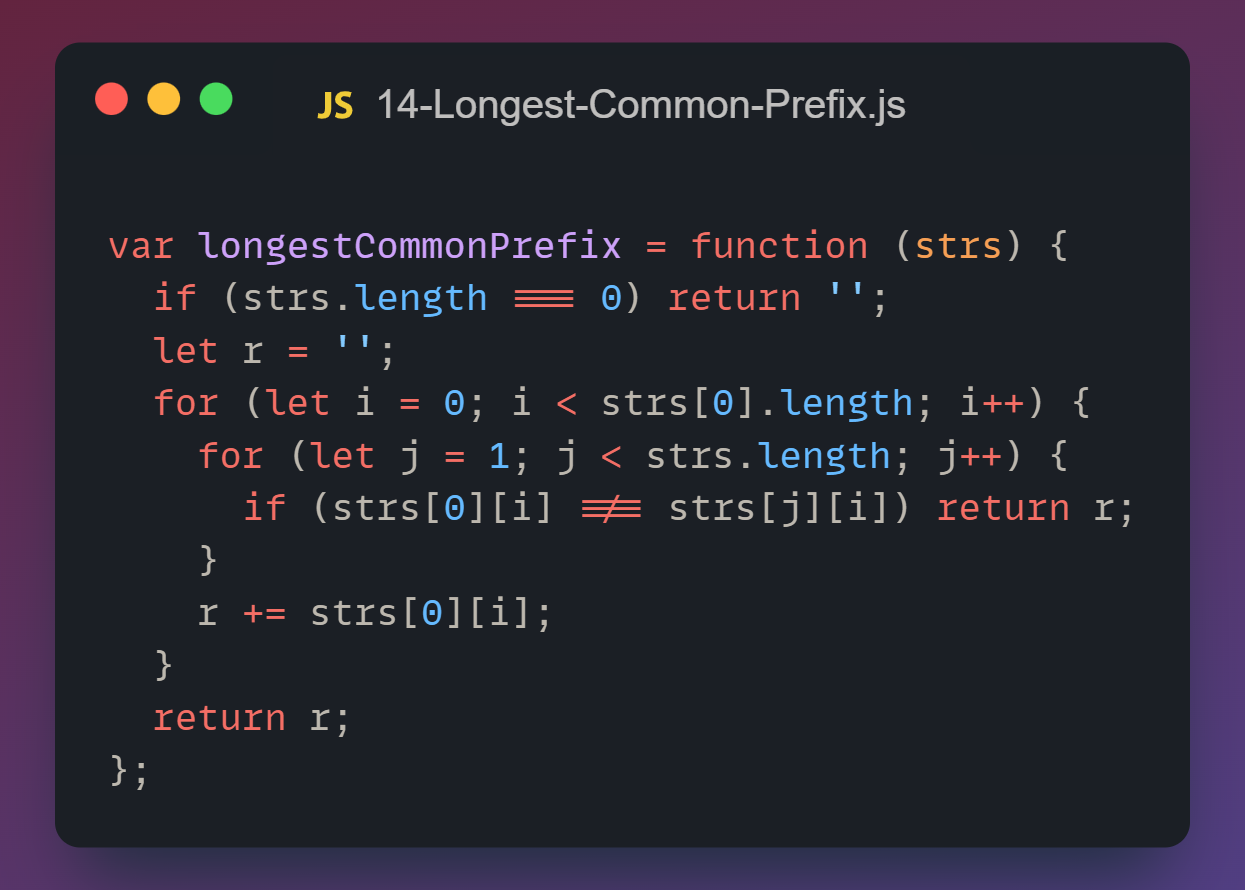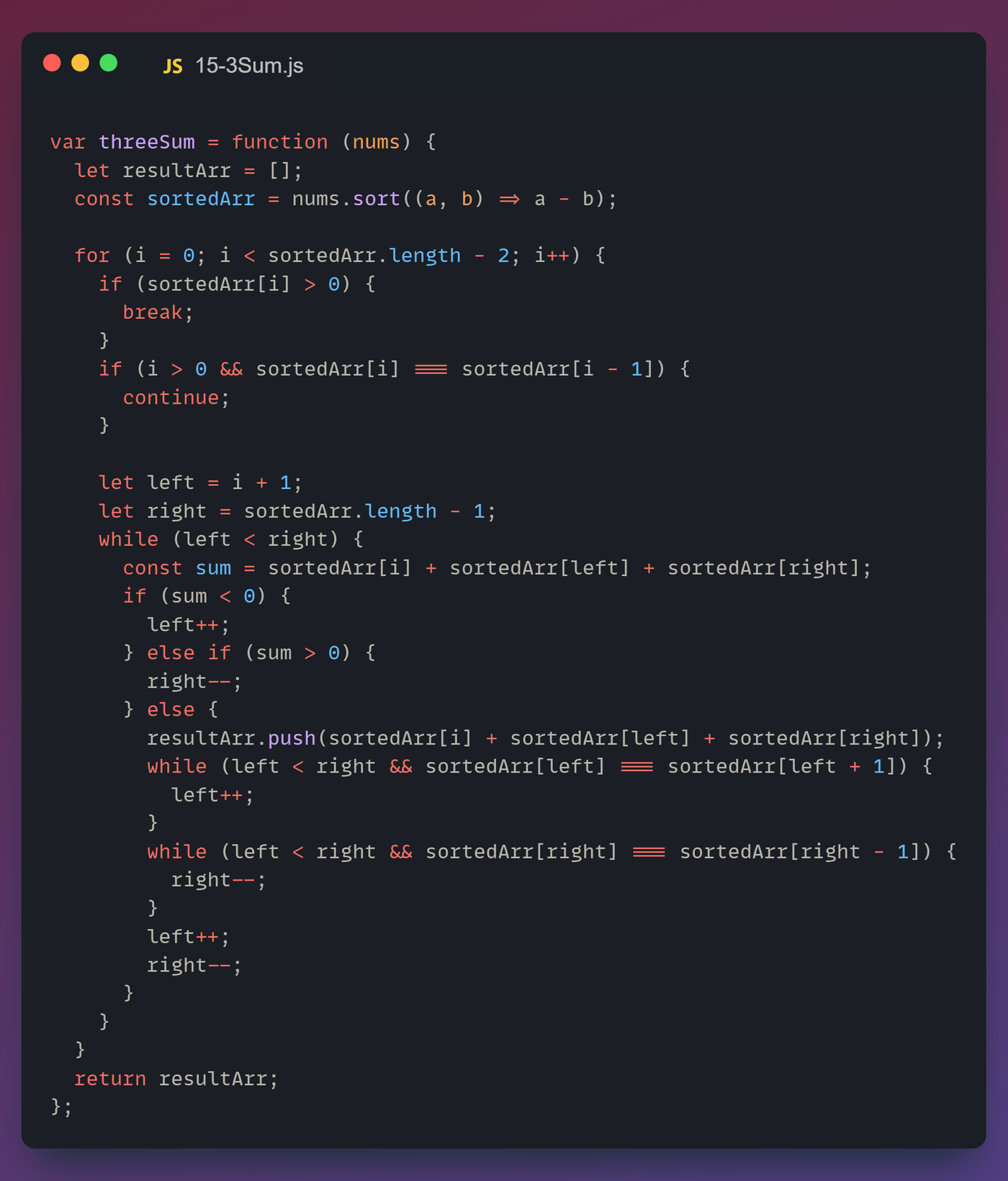Javascript in Leetcode 13–15|面試問題

目錄
- 13-Roman-to-Integer
- 14-Longest-Common-Prefix
- 15–3Sum
找到source code | Github
13. Roman to Integer
Roman numerals are represented by seven different symbols: I, V, X, L, C, D and M.
Symbol Value I 1 V 5 X 10 L 50 C 100 D 500 M 1000
For example, 2 is written as II in Roman numeral, just two ones added together. 12 is written as XII, which is simply X + II. The number 27 is written as XXVII, which is XX + V + II.
Roman numerals are usually written largest to smallest from left to right. However, the numeral for four is not IIII. Instead, the number four is written as IV. Because the one is before the five we subtract it making four. The same principle applies to the number nine, which is written as IX. There are six instances where subtraction is used:
Ican be placed beforeV(5) andX(10) to make 4 and 9.Xcan be placed beforeL(50) andC(100) to make 40 and 90.Ccan be placed beforeD(500) andM(1000) to make 400 and 900.
Given a roman numeral, convert it to an integer.
Example 1:
Input: s = "III" Output: 3 Explanation: III = 3.
Example 2:
Input: s = "LVIII" Output: 58 Explanation: L = 50, V= 5, III = 3.
Example 3:
Input: s = "MCMXCIV" Output: 1994 Explanation: M = 1000, CM = 900, XC = 90 and IV = 4.
Constraints:
1 <= s.length <= 15scontains only the characters('I', 'V', 'X', 'L', 'C', 'D', 'M').- It is guaranteed that
sis a valid roman numeral in the range[1, 3999].

14. Longest Common Prefix
Write a function to find the longest common prefix string amongst an array of strings.
If there is no common prefix, return an empty string "".
Example 1:
Input: strs = ["flower","flow","flight"] Output: "fl"
Example 2:
Input: strs = ["dog","racecar","car"] Output: "" Explanation: There is no common prefix among the input strings.
Constraints:
1 <= strs.length <= 2000 <= strs[i].length <= 200strs[i]consists of only lowercase English letters.

15. 3Sum
Given an integer array nums, return all the triplets [nums[i], nums[j], nums[k]] such that i != j, i != k, and j != k, and nums[i] + nums[j] + nums[k] == 0.
Notice that the solution set must not contain duplicate triplets.
Example 1:
Input: nums = [-1,0,1,2,-1,-4] Output: [[-1,-1,2],[-1,0,1]]
Example 2:
Input: nums = [] Output: []
Example 3:
Input: nums = [0] Output: []

